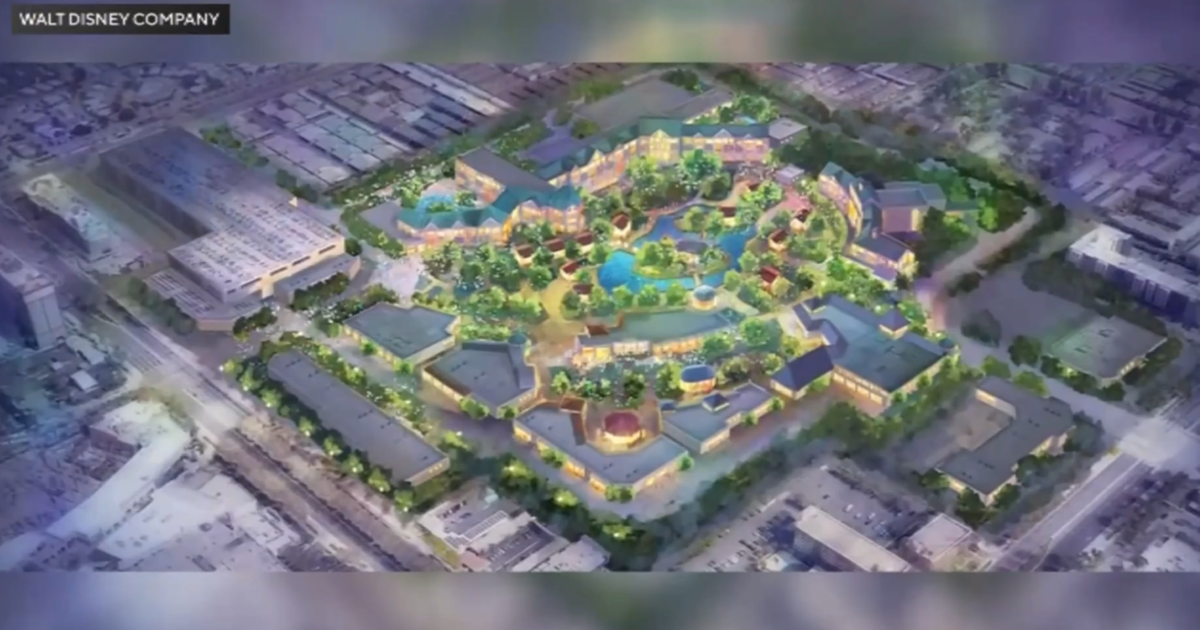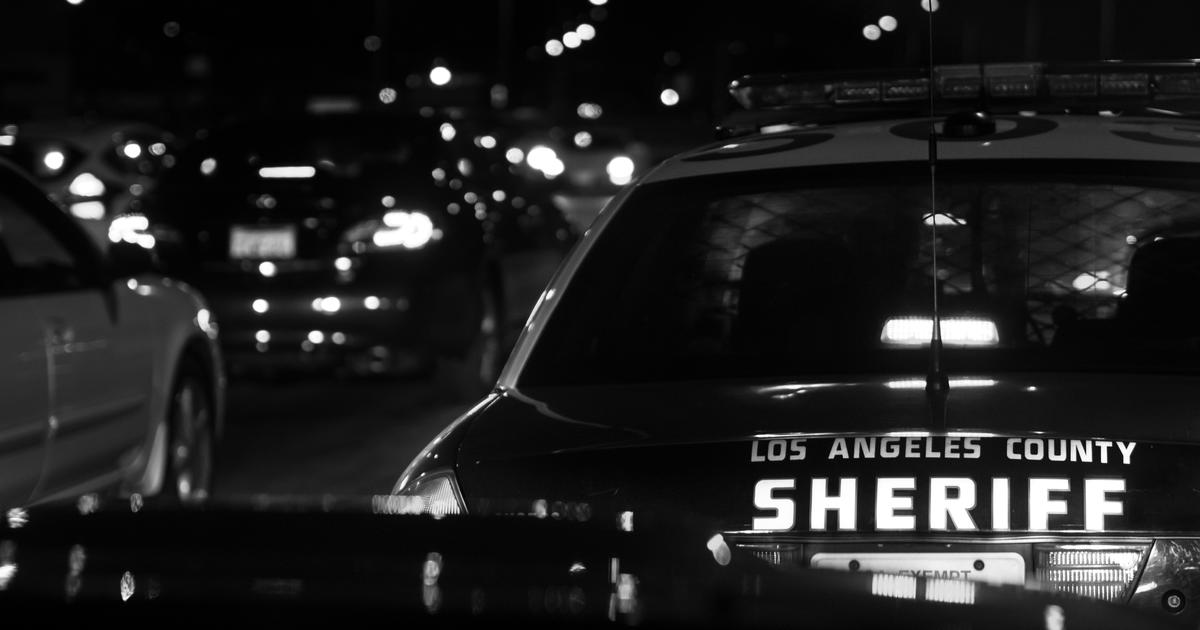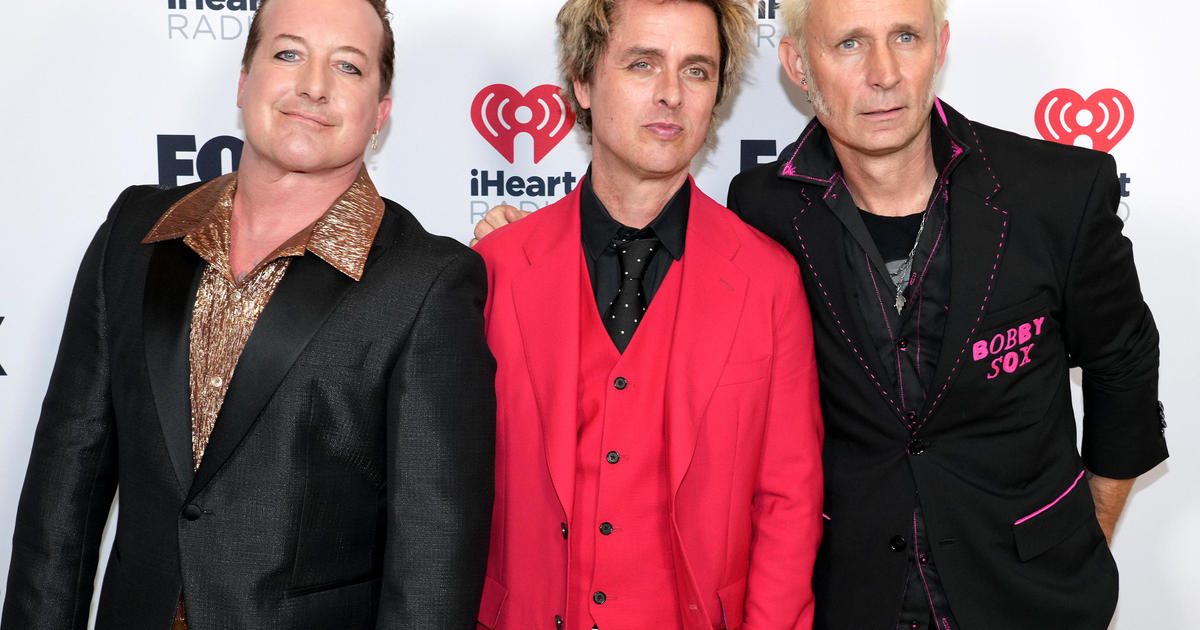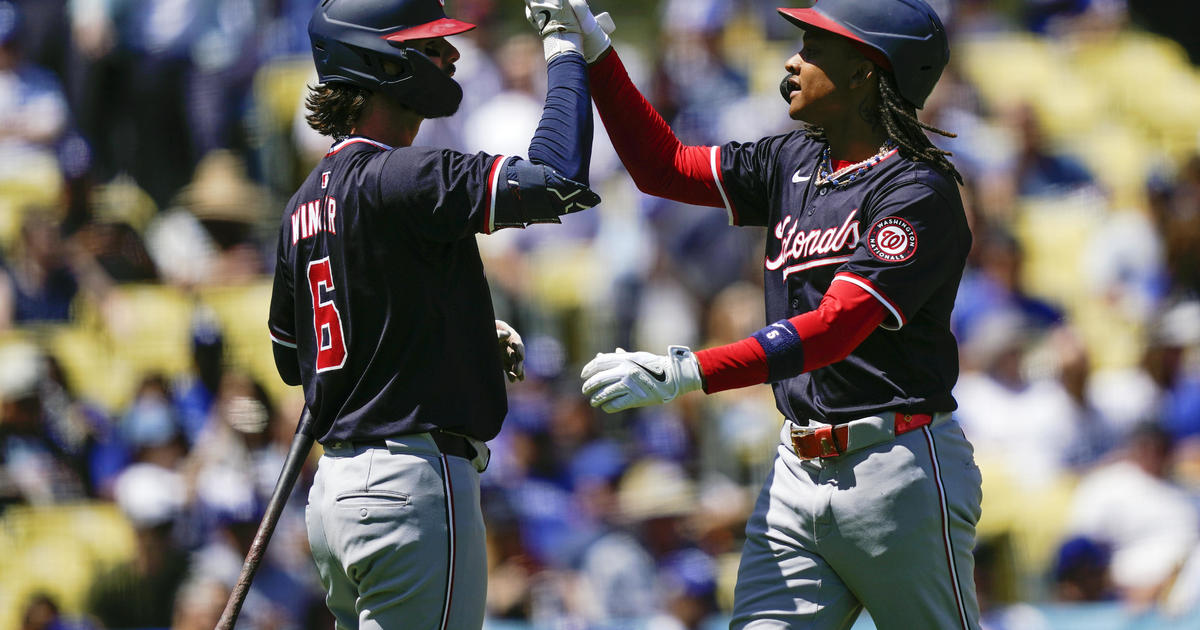Another NBA Franchise In Southern California?
Should the Hornets not remain in New Orleans, where might they end up? We look at the options. Posted by Matt Moore via CBSSPORTS.COM
With the NBA expected to take hold of the New Orleans Hornets without a locked on buyer in place, the next question will come immediately.
What if a non-NOLA buyer comes through with the best offer?
It's the money of the league and the owners that's being invested in removing George Shinn once and for all from the ranks of NBA ownership (see ya, George, don't let the luxury tax hit you on the way out), and the league will have a responsibility to both pursue and accept the best offer available.
Should that offer come from someone outside the greater New Orleans area, it's entirely possible that the Hornets could be playing somewhere else in the near future.
We've been down this road before.
And while New Orleans lacks the great and storied history of the Sonics franchise, no one wants to see a city that fought back from the greatest natural disaster to hit a major metropolitan area in United States history lose its team. But this isn't about PR or kids with jerseys or history or anything else.
It's about money.
And other cities not only have incentive to bring in the team, but the most important assets to convince the NBA to abandon New Orleans: the buildings.
New Orleans arena was built in 1999 for $114 million.
It has a capacity of 18,000, 44 luxury suites, and has been described as "bland."
It does not receive rave reviews from sponsors, guests, or media. The other cities in play have both newer arenas, as well as arenas fit more ably for modern NBA economics (luxury suites), etc.
Others who do not have such arenas have the awesome draw of the almighty large market.
So who are the prospective scavengers who might be circling while the Hornets continue to fill ... well, kind of fill New Orleans Arena? Here are the names being floated. (All arena information courtesy of Ballparks.com )
Kansas City: Kansas City once had an NBA team, the Kansas City Kings, now the Sacramento Kings, formerly the Cincinnati Kings, formerly the Rochester Royals, and briefly the Kansas City-Omaha Kings. But the team was terrible, management was terrible, and soon the team was off to Sacramento and the welcome bosom of cowbells.
Kansas City is most often criticized as being a "college town," "a baseball town," "a football town" (what isn't?) and unable to support three major pro teams.
The last of these criticisms ring most true as both the Royals and Chiefs struggle to fill their stadiums to reasonable capacities during down years (or as we Kansas Citizens like to call them, "the last ten years."
The "college town" aspect is a double-edged sword. While it's true that nearby KU and two-hour-neighbor MU hold the town's attention during basketball season, many of their players wind up in the pros. And at its heart, it's easy to argue that KC is a basketball town. It held the Big 12 tournament for years and the Big 8 before that.
(And by "before that" I mean "before Texas used its influence to rob any other school in the Big 12 of any influence").
When the Heat and Thunder played a preseason game this fall, a packed house was in place. Then again, that's the Heat. Some towns simply aren't built for the pro game, and that's the argument of some in regards to KC.
That said, the jewel in their crown is pretty simple. It's the building.
Sprint Center, built in 2005 and opened in 2007, has a capacity of 18,555 with a considerably higher number of available luxury suites and club seating due to how the building was constructed.
Specifically, the arena was built to capitalize on how current arena economics work. Tickets are valuable, to be sure, but the money is made with sponsorships, and luxury seating.
What's missing? A buyer. AEG who owns the Sprint Center, made noise early on about pursuing either a hockey or basketball team to fill the arena. But with the Pittsburgh Penguins using them as a straw man to get a new arena in Pittsburgh, there has been no team to arrive. Furthermore, it turns out the arena is making more money as a concert venue than it may with a regular tenant.
With the recession having hit Kansas City well before the rest of the country and a lack of progressive technology firms in the area, finding a prospective owner outside of AEG is going to be a hard sell. Kansas City remains a viable candidate but it remains to be seen if either AEG or the city will commit to making a serious inquiry toward the Hornets.
St. Louis: Two Show-Me cities with an interest in basketball. Many of the same concerns with Kansas City pop up with St. Louis, only their baseball team pretty much guarantees a significant dropoff of attendance right when the playoffs would start. St. Louis has the population, and has the building (the Scottrade Center where the Blues play).
The talks of St. Louis have never been as discussed as some of the other cities on this list, but with the Hornets being in such a unique position, it's possible a group could develop to push for a new team under the arch.
Anaheim: Ah, California. Fun, sun, beaches, and lots and lots of sports teams. With the Los Angeles Lakers and Los Angeles Clippers turning such a huge profit (despite the Clippers being, well, the Clippers) it's no wonder the NBA would be interested in another California team. Anaheim's done well with the Angels and Ducks, and though the market would no doubt be over-saturated should the Hornets relocate to the nearby neighbor of the City of Angels, the high cost of living would bring ticket prices to a point where profit is a near-given.
As for the arena? They've already got one in place. The Honda Center, home of the Anaheim Ducks, has a capacity of 17,174, with 84 luxury seats and 1,716 club seats. That's a lot of dough in a place ripe with firms looking to purchase such tickets for clients and as perks. It would make the fifth California team along with the Kings (should the Kings stick around in Sacramento) and Warriors, and the area has been invested in looking for a team for a few years.
In truth, Anaheim is a low-risk move, but could also backfire if the city simply can't sustain three franchises, regardless of its proximity to LA. Additionally, it's unknown if Jerry Buss, who runs the league about as much as anyone who isn't David Stern, would be amiable to another competitor near his market. He brought in Donald Sterling to own and move the San Diego Clippers, but an outsider honing in on his territory may not go over well, despite the massive, all-encompassing popularity and profitability of the Lakers.
Las Vegas : Long story short, there's no arena, but they're willing to build one if a team is relocated. It's a PR disaster for the league, but a financial windfall for the owners. While the fanbase is sure to be fickle, every high priced mogul and entertainer would have seats, and good ones, for a high price. Sponsorships would be easier to sell than lemonade in hell, and attracting free agents would be a snap. Nice weather, fun city, profitability, and the draw of having the city all to itself in professional sports? What's stopping them?
They still don't have the building.
There's a group in place pushing for it who even said they had a team lined up . And petitions are being gathered in order to get a vote before the state legislature, but no word has come if they have received enough. The situation remains in flux.
Seattle: As tempted as I am to scream "Back of the line!" considering Seattle voters had multiple chances to save the Sonics and chose to make their stand against corporate greed in the form of publicly funded arenas for privately held teams, it's hard to argue with the fact that Seattle got outright screwed in the Clay Bennett relocation of the Sonics to Oklahoma City as the Thunder. The fanbase is passionate, it's a large market, renewing basketball there would be seen as a good PR move that could dampen the outrage of taking a team away from the city that survived Katrina, and all that merchandise has already been manufactured with the Sonics logo.
The problem?
You guessed it. They still don't have the building. Key Arena simply isn't up to snuff, built in 1962. But with a capacity of 17,072, it does hold 58 suites and 1,702 club seats. It can make money, but not nearly in the way some of the other newer arenas can, and renovation costs would be high (hence Bennett's ability to squeeze out). Seattle fans have been clamoring for public officials to finance a new stadium, knowing the presence of an open building would bring a team back like moths to a flame. No dice, so far.
The biggest thing Seattle has going for it? Rich people. With Microsoft CEO Steve Ballmer vocal about the possibility of reacquiring a team, and with enough tech money in the area to finance a new arena in part, Seattle simply has the dough. While Seattle gets off more than it should for its complicity in the relocation of the Sonics, the fans were screwed, and this would go a long way with repairing national damage to the NBA's image in that event. Because moving New Orleans is fine, but Seattle really needs a team, apparently.
Chicago : This one was brought up by Sports Illustrated this week and it's an interesting question. Could Chicago support a sixth sports team, and a second basketball team? The Bulls undoubtedly would always be the favorite, the Yankees to the other team's Mets, as it were, but the market is indeed large enough to support a second team. Chicago has some of the best sports fans in the country, and attendance is almost always at stable league measures across sports. There are certainly enough investors to drum up an ownership group if someone was interested in a majority share, and sponsorships wouldn't be an issue, either.
But what about the building? It already exists.
The Los Angeles Lakers, Los Angeles Clippers, and Los Angeles Kings all occupy the Staples Center. While Staples is newer than Chicago's United Center which currently hosts the Bulls and defending Stanley Cup champion Blackhawks, the United Center is bigger, and you can make the dates work. The question would be if it would make financial sense for the United Center to give up the free nights for eight months of the year (geez the NBA season is long) in exchange for the tenant, and whether logistics costs would skyrocket too much with having to handle the demands of three teams.
A second Chicago team would satisfy the NBA owners contingent's interest in a stable, big-market location. An at least temporary arena is in place should the team's owners decide they want their own digs in another part of town, and it's hard to see there being no interest in the club given how rabid Chicago sports fans are. But that's a whole lot of teams in one market, and even New York has not had more than the Knicks in several decades (though they're due for a new neighbor in 2012). It would simultaneously be the easy way out and a bold move for the league to approve and push for a second team in the Windy City.
New Orleans : If Gary Chouest is out, a new owner in New Orleans is going to have to come out of left field. The fact that the franchise now looks like a garage sale isn't probably going to bring owners out, at least not the ones the NBA would want. But hey, there's a blog of fans looking for investors to make the $17,000 investment so that the city could own the team. Imagine a blog running an NBA team. We're pretty sure that's about three steps from the apocalypse.
All kidding aside, the NBA is right to pursue local ownership. We saw with Seattle how traumatic losing a team can be. And while Hornets fans certainly don't have the history or passion of those Sonics fans in number, there's no reason they don't have that quality of investment. Kids still love going to Hornets games with their families, and guys still go Hornets games and yell about Emeka Okafor after the game like any city. The right thing to do would be to keep the Hornets in New Orleans.
The problem is that these days, the right thing to do is almost never the right business decision to make.
We'll keep you updated as the Hornets' ownership situation develops.
(©2010 CBS Local Media, a division of CBS Radio Inc. All Rights Reserved. This material may not be published, broadcast, rewritten, or redistributed. Wire services contributed to this report.)



